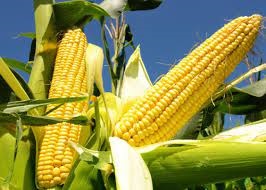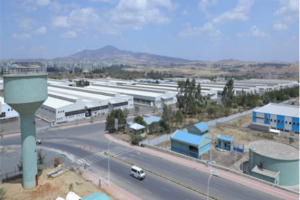
As learned from the study entitled “Analysis of Constraints and Opportunities in Maize Production and Marketing in Ethiopia,” October 2024, Heliyon10, in Ethiopia, the agricultural sector, particularly cereal production and marketing, is the largest sub-sector in several key aspects. It provides job opportunities for 60% of rural dwellers and occupies 88% of total grain crop production.
Additionally, it accounts for more than 40% of a typical household’s food expenditure, 60% of total caloric intake, and 30% of the national GDP. However, of the total cereal production, excluding the portion set aside for consumption, only 28% of the total grain production (including oilseeds and pulses) is marketed.
Maize is one of the most important staple crops of the country in terms of production, yield, affordable unit price and cheapest caloric source.
About 18% of maize producers participate in maize markets, which is lower than Teff (48%) and wheat producers (37%). In such a way, it is compulsory to investigate and review the major production and marketing constrained of maize production in Ethiopia.
Maize producers face several challenges, including a limited availability of enhanced maize varieties, outdated technology, season- dependent conditions, and weather-related problems. Additional issues include insufficient irrigation, pest and disease problems, inadequate credit services, and a shortage of market information.
Furthermore, difficulties related to inadequate storage facilities, ineffective post-harvest management, unregulated dealers, insufficient market knowledge, price fluctuations, and poor maize quality were long-standing constraints on the production and marketing of maize.
National Variety Release Committee has approved the commercial release of three genetically engineered corn varieties (TELA Maize) on February, 2025, after assessing its human and environmental impact to enhance maize productivity per hectare. Private seed producers and distributers have launched the distribution of the varieties.
Coordinator of TELA Maize Project and Researcher with Ethiopian institute of Agricultural Research (EIAR) Tesfaye Disasa (PhD) told The Ethiopian Herald that the world launched the first Genetically Modified crop before 30 years. However, it is new for Ethiopia and other African countries.
More than 210 million hectares of land across the world are growing genetically engineered crops by 2024. Many countries are applying the variety to ensure food security through enhancing their agricultural productivity. It has been approved in 70 countries worldwide, and countries that are growing genetically engineered crops are the United States, Brazil, Argentina, Canada, and India.
Additionally, the committee approved the release of Bt-GT cotton, a variety designed to withstand bollworms, a major pest in cotton cultivation.
The introduction of Bt-GT cotton is expected to be pivotal in meeting this demand. Confined field trials indicate that this genetically modified cotton yields between 48 to 57 quintals per hectare, which is significantly higher than the 32 quintals produced by local varieties.
The TELA maize varieties were developed with main aim to protect the maize crop against stem borers and fall armyworms (FAW), pests that have long plagued Ethiopian farmers.
These new TELA varieties offer a yield advantage of up to 60% compared to conventional maize varieties. The modified maize variety not only enhances grain quality but also reduces the need for chemical insecticides, lowering production costs while minimizing environmental and health risks.
He noted that the process took seven years, including five years for biosafety approval process and an additional two years for variety release approval. The biosafety regulation mainly focused on assessment of risks associated with transgenic maize hybrids on human and animal health as well as on environment.
He also mentioned that similar transgenic maize varieties have already been successfully commercialized in other African countries like Nigeria, Kenya, and South Africa.
Tesfaye emphasized that these new varieties will significantly reduce farmers’ reliance on costly pesticides, thereby lowering labor costs and providing environmental and health benefits. The approval will address the prevalent issue of illegally imported GMO seeds, highlighting the need for regulated and scientifically validated crop varieties.
As to the researcher, also the approval is helpful to solve the shortage of seed encountered in the country.
Discussions have been held last week in Addis Ababa University College of Business and Economics on event organized by Ethiopian Academy of Science on Genetically Modified Organism (GMO).
On the discussion event, Lecturer and researcher at Natural and Computational Sciences with Addis Ababa University Professor Tiliye Feyissa said that the benefits and risks of genetically modified agricultural products” was the main idea of the discussion.
After many years of testing on genetically modified corn in Ethiopia, the environmental protection authority has approved its commercialization, he said.
He also explained that the yield increased by 56 % in the test and that it can be used for food by growing it adding that genetically engineered corn will be available to farmers starting this year, “However, it will be up to the farmer to decide which one to use,” he said.
“Genetically engineered corn is offered to farmers as an option.”
“We are not self-sufficient in food; up to 20 million people are affected. Therefore, as long as genetic engineering increases our production, provides us with nutrients from food and ensures our food security, we will continue to use it noting that the production process of genetically engineered cotton will expand significantly in the coming years” he added.
Concerning health impact Professor Tiliye said that no health problems have been observed in the past 30 years. If there is no impact in 30 years, there will be no specific health problems in the next 40 years.
According to the information obtained from US Department of Agriculture (USDA) Ethiopia’s National Variety Release Committee (NVRC) approved the commercial release of three TELA maize hybrid varieties.
These newly introduced varieties are genetically engineered for improved insect resistance and drought tolerance, with the potential to yield up to 60 % more than conventional maize varieties. By adopting this biotech innovation, TELA maize has become Ethiopia’s first genetically engineered food crop. With this milestone, Ethiopia joins South Africa, Nigeria, and Kenya as the fourth African country to approve the commercialization of biotech maize.
The adoption of TELA maize marks Ethiopia’s first commercially available genetically engineered food crop. This development has significant implications for Ethiopian agriculture, as maize is the country’s most widely grown and consumed grain, playing a crucial role in food security and rural livelihoods.
According to USDA estimates, Ethiopia is one of the leading maize producers in Sub-Saharan Africa, with local production projected to reach approximately 10.2 million metric tons in the 2024/25 season.
The newly introduced GE maize varieties provide a yield advantage of up to 60 % over local maize varieties. Additionally, the TELA maize varieties are expected to improve grain quality, significantly reduce reliance on chemical pesticides, lower production costs, and mitigate both environmental and health risks.
TELA maize seeds will be made available to Ethiopian smallholder farmers royalty-free through local seed companies. This means farmers will have access to TELA maize at the standard price of regular maize seeds without any additional royalty fees.
TELA maize confined field trials in Ethiopia began in 2018 and passed extensive environmental, health, and safety assessments to ensure its suitability for Ethiopian agriculture. These evaluations reportedly confirmed that TELA maize is safe for human and animal consumption and poses no adverse effects on the environment. The biosafety and variety release approval process for TELA maize spanned about seven years, from 2018 to 2025.
BY TAMERU REGASA
THE ETHIOPIAN HERALD THURSDAY 12 JUNE 2025



